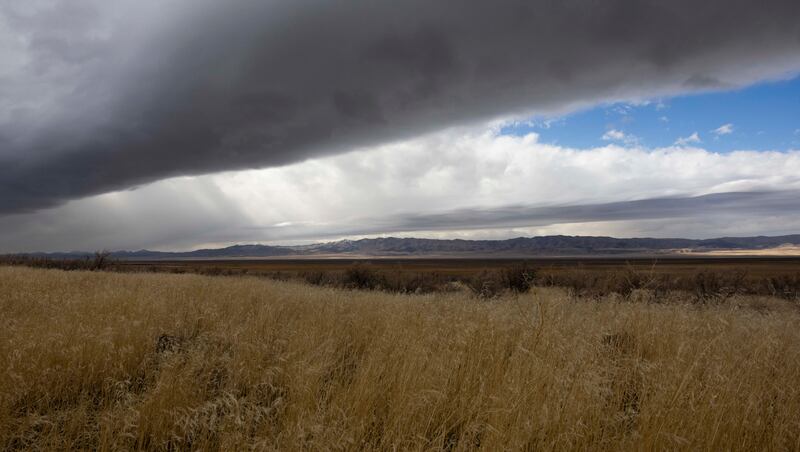- Dapatkan link
- X
- Aplikasi Lainnya
Gov. Cox Reveals Trump Administration's Game-Changing Move on Affordable Housing in Utah: What You Need to Know

Governor Spencer Cox of Utah praised a decision by the Trump administration to allocate certain federal lands for residential development, calling it the most significant action Washington, D.C., could take to tackle the country’s housing affordability crisis.
On Monday, Interior Secretary Doug Burgum, responsible for managing federal lands, and Housing and Urban Development Secretary Scott Turner, overseeing affordable housing initiatives, announced A fresh collaboration aimed at pinpointing neglected areas for "custom-tailored housing initiatives," guided by state and local authorities.
This is undoubtedly the most crucial step the federal government can undertake to make housing more affordable," Cox stated to the Deseret News. "This initiative will increase the likelihood of more Utah families achieving the American dream.
The recently launched federal program, very similar to the HOUSES Act proposed by Senator Mike Lee from Utah, seeks to streamline the land transfer procedure and advocate for housing policies that also address significant ecological factors, as stated in the document. announcement posted on X.
Several critics condemned the proposal, arguing that it would prioritize private development over public access to federal lands. Nonetheless, it garnered support. praise from voices on both sides of the aisle who see the amount of federally controlled lands in the West as being in tension with housing supply.
What portion of Utah consists of federal lands?
Nearly 65% of Utah is owned and managed by the federal government. No other state lacks as much control of its territory with the exception of Nevada. Many states in the Midwest and on the East Coast have less than 4% of their land controlled by federal agencies.
In January, Cox's top advisor on housing affordability, Steve Waldrip, referred to the concept of making federal lands available for residential development as "an excellent solution" to address Utah's housing crisis, where the median home price has surged to at least five times the median household income in 60% of the state.
Waldrip mentioned that population growth in Utah is exceeding new constructions by approximately 6,000 units annually. Should this pattern persist, the shortfall of 37,000 houses from last year might escalate to about 45,000 houses by 2025.
Much of this shortage is caused by the high cost of construction supplies, infrastructure and land. According to Waldrip, 217,000 acres within Utah city boundaries, and 650,000 acres within a mile outside of city limits, is owned and managed by the Bureau of Land Management or the National Forest Service.
We're not discussing constructing homes beneath Delicate Arch," Cox stated during his monthly televised press briefing on Thursday. "Instead, this involves parcels of land inside the limits of current municipalities across the nation.
Cox pointed to Clark County, Nevada, as an example of where this has been attempted with great success in maintaining affordable home prices after former Sen. Harry Reid sponsored a law affecting just the areas around Las Vegas.
In his earlier statement, Cox reiterated that removing federal obstacles to building on the thousands of acres of federal land along the Wasatch Front will help to increase housing supply and decrease costs for Utahns.
“By responsibly identifying underused federal properties and streamlining the regulatory process, this initiative will cut through the red tape that has slowed down housing development for far too long,” Cox said.
But if municipalities could build on this land they would still be faced with the problem of massive infrastructure needs, including new roads and plumbing, that would need innovative funding mechanisms with the state’s help, according to Waldrip.
Mike Lee’s HOUSES Act
Utah’s senior senator took Monday’s announcement as an opportunity to promote a novel piece of legislation he has pushed for the last three years.
Lee’s Helping Open Underutilized Space to Ensure Shelter — or HOUSES — Act, would allow municipalities to purchase federally managed land touching city limits for the purpose of developing affordable homes.
“The Houses Act would give hardworking Americans access to affordable, single-family housing by opening up unused federal land in or near municipalities for that purpose,” Lee said In a repost sharing Burgum and Turner’s video.
Lee’s proposal has garnered consistent acclaim from Cox and state legislators but hasn’t made significant progress in congressional committees. However, a source close to discussions at the Capitol mentioned that Lee plans to collaborate with the administration to promote the utilization of federal land for single-family homes similar to what was outlined in his HOUSES Act.
Utah’s Legislature passed a resolution In support of Lee’s legislation during the 2024 legislative session, the state announced a significant development in August. lawsuit requesting the U.S. Supreme Court to determine if the federal government holds constitutional power to retain unallocated public lands within the state despite opposition from the state itself.
In January, the Supreme Court declined to consider Utah's case. However, Cox along with Utah Attorney General Derek Brown stated they would persist in their attempts to manage a larger portion of Utah’s public lands through a lawsuit filed in the federal district court.
Komentar
Posting Komentar